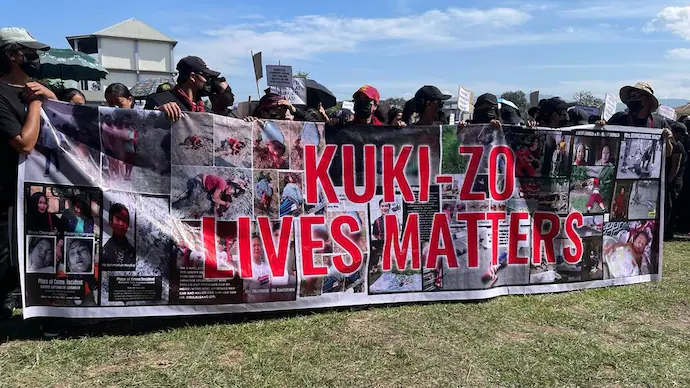Now Reading: Centre and Manipur Government Clash Over Voter List Update in Tribal Areas
-
01
Centre and Manipur Government Clash Over Voter List Update in Tribal Areas
Centre and Manipur Government Clash Over Voter List Update in Tribal Areas

A new conflict is brewing between the Centre and the Manipur government over the revision of electoral rolls in areas governed by the Hill Areas Committee. The disagreement, focused on the Special Summary Revision (SSR) of electoral rolls, has sparked a fresh constitutional debate — with tribal rights, state authority, and democratic processes all caught in the middle.
What’s the Dispute?
The Election Commission of India recently launched the 2025 electoral roll revision across the country. However, in Manipur’s hill districts, the state government has raised objections. These areas fall under the jurisdiction of the Hill Areas Committee, which represents the tribal population and holds certain autonomous powers under the Constitution.
The Manipur government argues that without the Hill Committee’s consultation or approval, voter roll revision in these regions cannot proceed — citing Article 371C, which provides special provisions for Manipur’s tribal-dominated hills.
Centre’s Stand
The central government and the Election Commission, on the other hand, believe the SSR is a standard exercise and does not require state-level clearance for implementation. They argue that electoral roll updates are governed by federal law and must be carried out uniformly across the country to maintain democratic timelines and ensure voter inclusivity.
This disagreement has now led to a standoff, with the revision exercise facing delays in some parts of Manipur.
Why This Matters
The issue goes beyond just administrative procedures. For the tribal population in Manipur — many of whom belong to Tier 2 and Tier 3 towns like Churachandpur, Ukhrul, and Senapati — the voter list isn’t just about elections. It’s about recognition, inclusion, and rights in a state where identity politics often dominates.
Any mismatch or oversight in the electoral roll directly affects access to public services, representation, and welfare entitlements.
Looking Ahead
With neither side backing down, the matter may head for legal or constitutional interpretation. Tribal leaders have called for the state’s autonomy to be respected, while the Centre is pushing for the SSR to proceed without further delay.
The deadlock reflects a deeper challenge in balancing uniform governance with regional autonomy — a recurring issue in India’s diverse political landscape. For now, the voters in Manipur’s hill districts are left waiting, once again caught between two levels of government pulling in opposite directions.

























